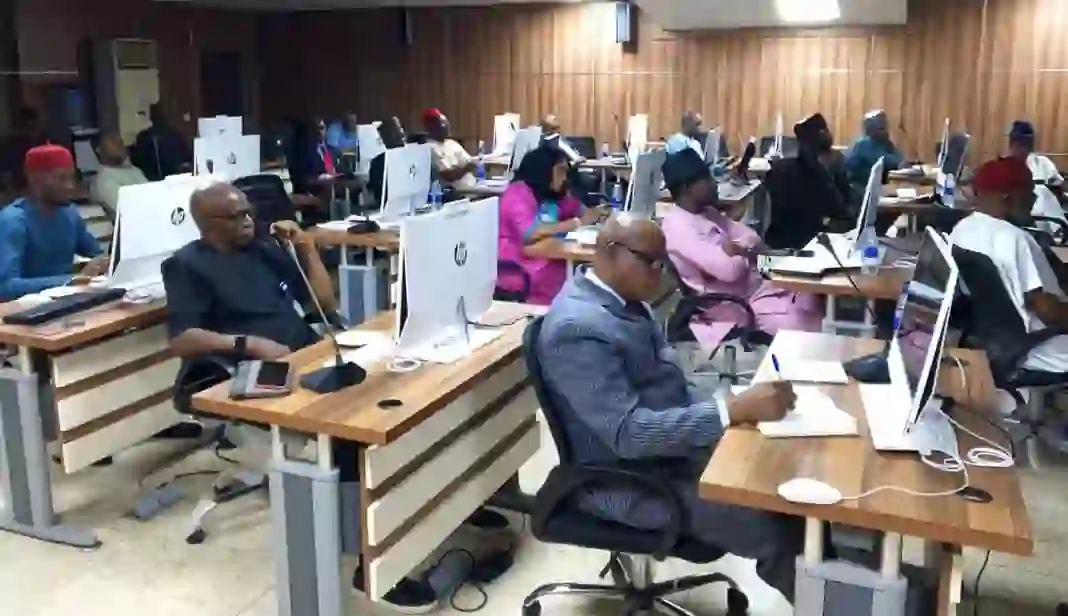A Dutch-Africa platform based in the Netherlands, INCLUDE has released findings on the challenges faced by youth and women in Nigeria’s renewable energy sector, highlighting obstacles to employment opportunities. The platform offers actionable strategies to address these barriers, fostering a more inclusive and equitable renewable energy workforce.
The platform recently hosted a virtual symposium, titled “Decent Jobs for Youth and Women in Nigeria’s Low-Carbon Transition,” in collaboration with the House of Representatives Committee on Renewable Energy, chaired by Hon. Afam Victor Ogene.
According to its Executive Director, Anika Altaf, INCLUDE promotes and facilitates evidence-based policymaking on inclusive development, with a focus on Africa. “We do this through our three pillars: Research, Knowledge Exchange, and Policy Dialogues.”
In his opening remarks, Hon. Ogene, said that the House of Representatives Committee on Renewable Energy was delighted to acknowledge the significant impact its collaboration with INCLUDE. “Our joint efforts, particularly through inclusive policy dialogues, have prioritized the needs of the people, who are the bedrock of democracy, essentially, as regards access to clean energy in the rural areas. Our partnership with INCLUDE has substantially enhanced the Committee’s core objectives, which include developing policies and initiatives to promote investment in renewable energy technologies in Nigeria.
“One of the notable achievements of our collaboration with INCLUDE is the forthcoming, first ever, National Conference on Renewable Energy in Nigeria. This landmark event aims to convene key stakeholders in the Nigerian and international renewable energy sectors for a fruitful dialogue on policy and sustainable development in the industry.”
The lead researcher for INCLUDE, Victoria Manya, in her presentation many stakeholders at the event described as brilliant, highlighted the challenges faced by youths and women in accessing employment in the renewable energy sector to include, “Lack of Labor-Based Incentives, Exclusion from Decision-Making, replication of energy poverty, barriers to entrepreneurship, need for improved data and awareness.
She also highlighted the “Impact on Informal Sector Jobs: The shift to renewable energy poses risks to jobs in the informal sector, such as charcoal production, without providing clear pathways for transitioning these roles into the formal economy.”
The research concluded that “For Nigeria’s low-carbon transition to be truly inclusive, it must prioritize labor-based incentives and involve marginalized groups in policy formulation. This approach will not only bridge the energy poverty gap but also ensure that the benefits of the transition are widely shared across all segments of society.”
Some of the takeaways from the well attended symposium, included the following recommendations:
“Strategic Multi-Stakeholder Collaboration: The symposium reinforced the importance of cross-sectoral collaboration, particularly between lawmakers and technical experts. This partnership is vital for crafting policies that are not only comprehensive and informed but also capable of addressing the intricate challenges of a labor-driven low-carbon economy.
“Data-Driven Socioeconomic Strategies: Accurate data collection and analysis were identified as key to developing and implementing effective labor-based incentives. High-quality data is essential to inform policy decisions, measure socioeconomic impact, and ensure that the transition to a low-carbon economy is inclusive and equitable
“Entrepreneurship and Empowerment: The discussions emphasized the role of entrepreneurship in driving the transition, particularly for youth and women. By embedding labor incentives within the entrepreneurial ecosystem, we can stimulate innovation, foster economic resilience, and ensure that the transition supports sustainable livelihoods.”
“Bridging the Energy Poverty Gap through Public Awareness and Stakeholder Engagement: One of the most significant opportunities highlighted during the symposium was the potential to bridge the energy poverty gap through a labor-focused transition to renewable energy. This approach is not just about providing access to cleaner energy but also about creating socio-economic benefits that uplift marginalized communities. Raising awareness about the transformative potential of renewable energy is essential. By educating citizens—particularly those in marginalized and underserved areas—about the socio-economic opportunities that a labor-focused transition can offer, we can empower these communities to actively participate in the renewable energy sector. This participation is crucial for ensuring that the benefits of the transition are equitably distributed, leading to widespread engagement and reducing energy poverty.”
The symposium brought together a diverse group of attendees, comprising members of the House Committee on Renewable Energy, Climate Change, and Youth Development Affairs, alongside various stakeholders and experts from the renewable energy sector.
Discover more from The Source
Subscribe to get the latest posts sent to your email.








